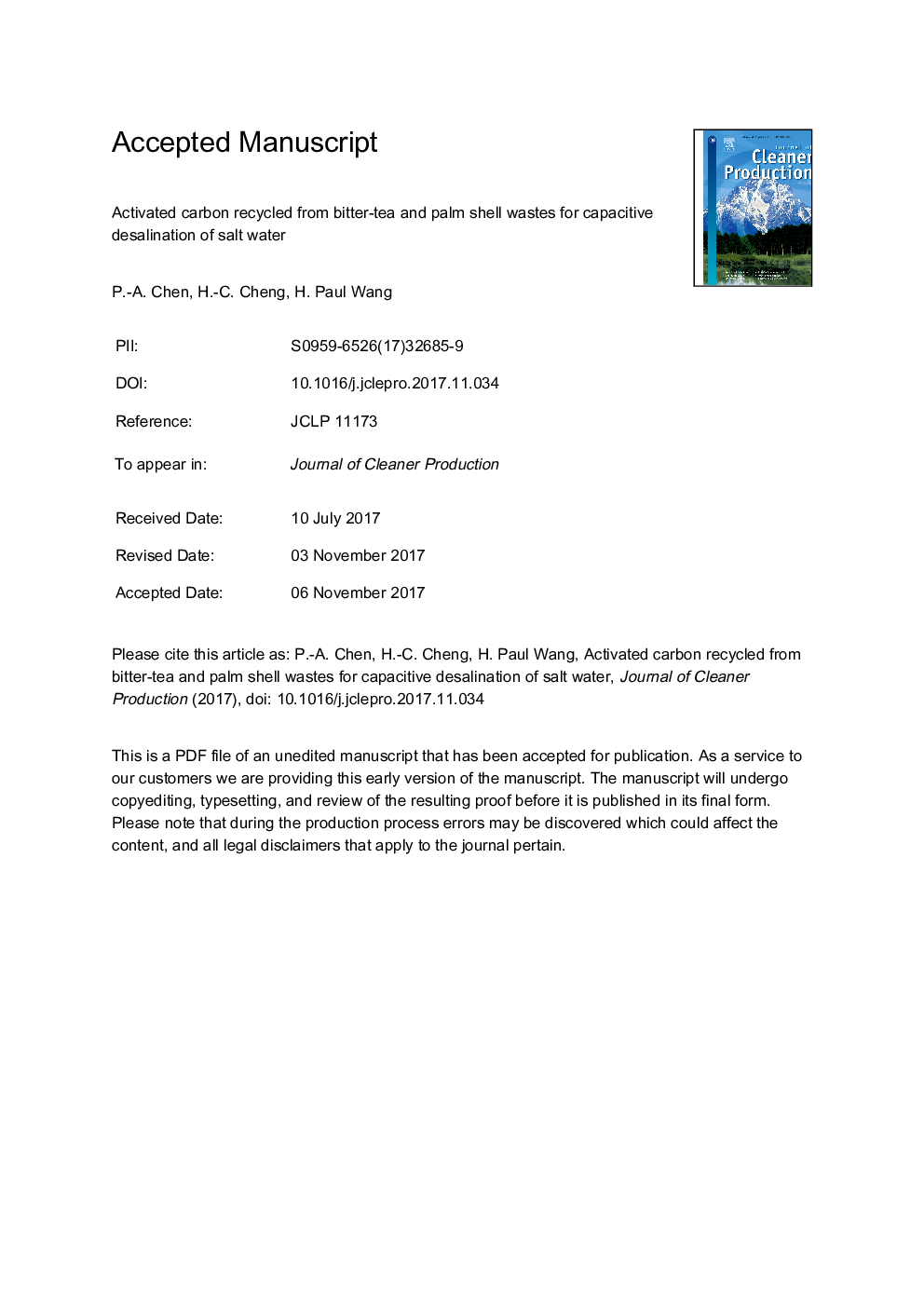| کد مقاله | کد نشریه | سال انتشار | مقاله انگلیسی | نسخه تمام متن |
|---|---|---|---|---|
| 8099661 | 1522079 | 2018 | 27 صفحه PDF | دانلود رایگان |
عنوان انگلیسی مقاله ISI
Activated carbon recycled from bitter-tea and palm shell wastes for capacitive desalination of salt water
ترجمه فارسی عنوان
کربن فعال از زباله های تلخ و نخل برای بازیافت خلأ آب نمک بازیافت می شود
دانلود مقاله + سفارش ترجمه
دانلود مقاله ISI انگلیسی
رایگان برای ایرانیان
کلمات کلیدی
موضوعات مرتبط
مهندسی و علوم پایه
مهندسی انرژی
انرژی های تجدید پذیر، توسعه پایدار و محیط زیست
چکیده انگلیسی
Capacitive deionization (CDI) has been considered as a low energy consumption, economically attractive and environmental friendly method for desalination of salt water. Generally, the electrode materials play the key role in CDI. In the present work, representative activated carbons (ACs) recycled from bitter-tea and palm shell wastes (denoting BAC and PAC, respectively) were used as the CDI electrodes. To provide additional disinfection ability during CDI of salt water, Ag@C core-shell nanoparticles prepared from carbonization of Ag+-cyclodextrin complexes at 673 K were dispersed on the AC electrodes. By FTIR, it seems that the ACs have the less oxygen on their surfaces with more aromatic contents if the compared with the shell wastes as the carbon sources. Electrosorption efficiencies during the one-through CDI of a salt water ([NaCl] = 1000 ppm) using the BAC and PAC electrodes at +1.2 V are 25 and 28%, respectively. As the voltage is increased to +1.6 V, the electrosorption efficiencies and recovery performances of the PAC and Ag@C/PAC electrodes during the repeated CDI tests (+1.6 V â 0 V â +1.6 V) are similar to those operated at 1.2 V. However, after the potential polarity is reversed (+1.6 V to â1.6 V), their electrosorption efficiencies are considerably increased (capable of 40%). The ACs dispersed with the Ag@C nanoparticles (Ag@C/AC) has less contact angles, giving a better hydrophilicity. High disinfection abilities (95-98%) for the Ag@C/ACs electrodes during the 2-h CDI reaction can be obtained. This work exemplifies that the ACs recycled from shell wastes as CDI electrodes for desalination of salt water are chemically feasible. In addition, the AC-based CDI electrodes dispersed with Ag@C core-shell nanoparticles have additional disinfection ability during desalination of salt water.
ناشر
Database: Elsevier - ScienceDirect (ساینس دایرکت)
Journal: Journal of Cleaner Production - Volume 174, 10 February 2018, Pages 927-932
Journal: Journal of Cleaner Production - Volume 174, 10 February 2018, Pages 927-932
نویسندگان
P.-A. Chen, H.-C. Cheng, H. Paul Wang,
